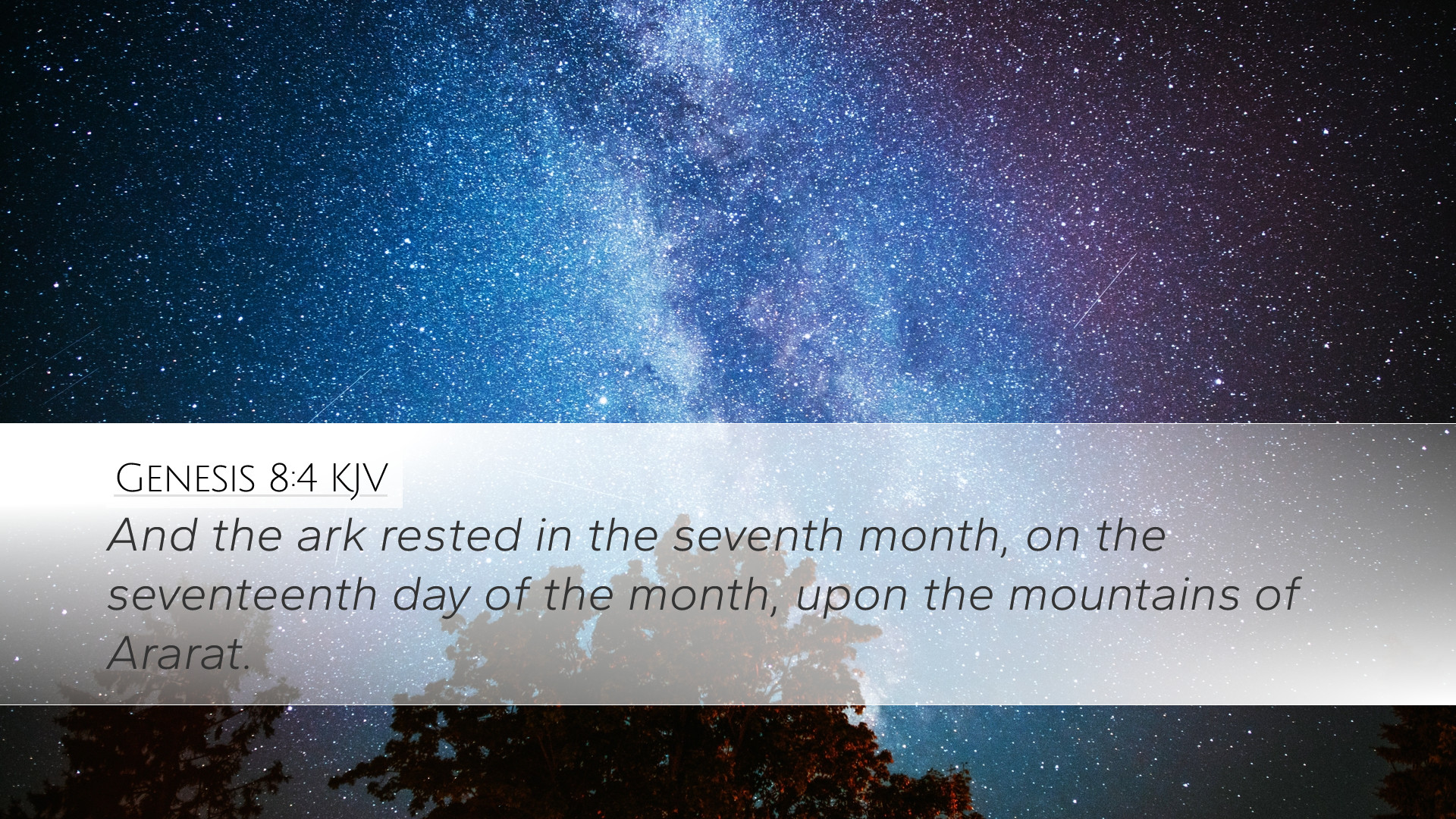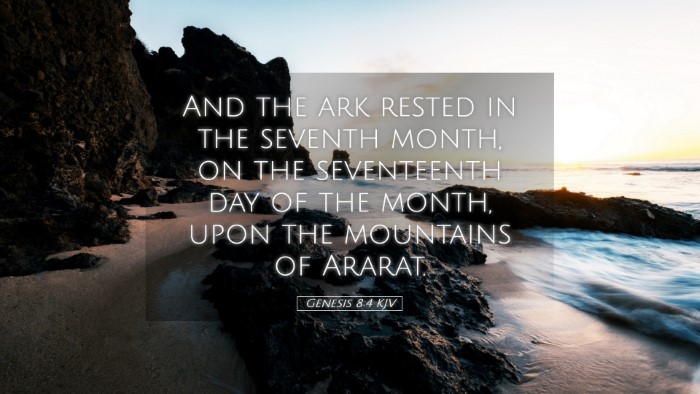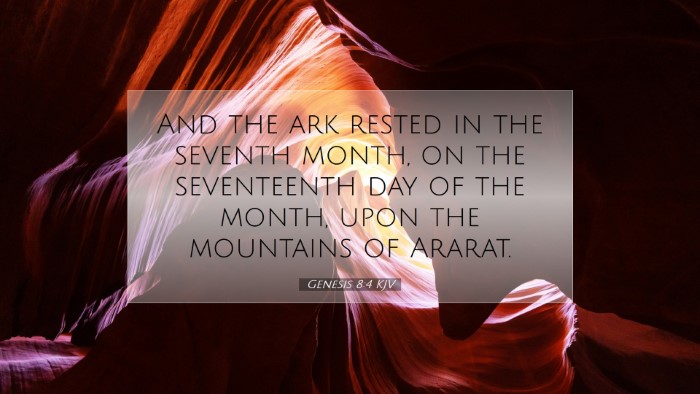Commentary on Genesis 8:4
Verse: "And in the seventh month, on the seventeenth day of the month, the ark came to rest on the mountains of Ararat."
Introduction
This pivotal moment in Genesis marks the end of the flood and the beginning of a new chapter in God's relationship with humanity and creation. The text of Genesis 8:4 holds significance not only in the narrative of Noah but also in theological reflections regarding divine providence, judgment, and promise. Various commentaries—specifically those of Matthew Henry, Albert Barnes, and Adam Clarke—provide rich insights that enhance our understanding of this verse.
The Significance of Timing
Matthew Henry emphasizes the importance of the chronological details mentioned in the verse: "the seventh month" and "the seventeenth day". This period in the Hebrew calendar is laden with symbolic meaning, reflecting the workmanship of God in history. The seventh month often signifies completion and divine perfection—tying back to the creation narrative in Genesis 1.
Albert Barnes elaborates on the significance of the number seven in the biblical context. In Jewish tradition, the seventh month is a time of solemnity and remembrance, signifying the end of a season of judgment and the beginning of renewal and restoration. This deepens our understanding, illustrating how God's timing is always purposeful. God brings Noah and the ark to rest in accordance with divine providence.
The Ark's Rest: A Metaphorical Interpretation
The rest of the ark on Ararat is a significant event beyond physical drifting. Adam Clarke notes that this act symbolizes a divine sanctuary amidst chaos, representing God's salvation. The ark, which preserved Noah, his family, and the animal species, can be seen as a type of Christ—Christ being our refuge from judgment and the source of new life.
Matthew Henry continues with this theme, suggesting that just like the ark found its resting place, believers also find rest in God's promises. This linkage encourages reflection on how God provides refuge and peace to His people throughout tumultuous times.
The Mountains of Ararat
The precise location of Ararat is often debated; however, its implications are profound. Albert Barnes reflects that the mountains symbolize elevation and superiority, portraying God's sovereign hand in the re-establishment of the earth after its cleansing through the flood. It marks the emergence of a new order.
Adam Clarke describes Ararat as a locale characterized by strength, suggesting that where the ark rested, a new beginning would emerge, filled with hope and promise. This transition from destruction to a hopeful future is central to understanding God's overarching plan for humanity.
Theological Insights
This verse encapsulates several critical theological themes:
- Judgment and Grace: The flood represents God's judgment, while the resting of the ark symbolizes His grace and mercy, highlighting the balance of divine justice.
- New Beginnings: The ark's landing signifies a fresh start for humanity. Matthew Henry notes that despite the destruction, Noah’s faithfulness leads to a renewed covenant with God.
- God's Sovereignty: The precise timing and location of the ark's rest reflect God's sovereign control over creation, reinforcing the theme that He governs the course of history.
- Human Response: The resting of the ark invites Noah and those with him to a renewed relationship with the Creator, demonstrating the call to gratitude and worship.
Conclusion
Genesis 8:4 serves as a profound reminder of God’s faithfulness in the midst of judgment and chaos. The reflections from public domain commentaries provide a layered understanding of the text, encouraging pastors, students, theologians, and scholars to explore both its historical context and theological depth. This verse stands not only as a historical account of the end of the flood but as a foundational statement of God's enduring grace and the hope of restoration for all of creation.


